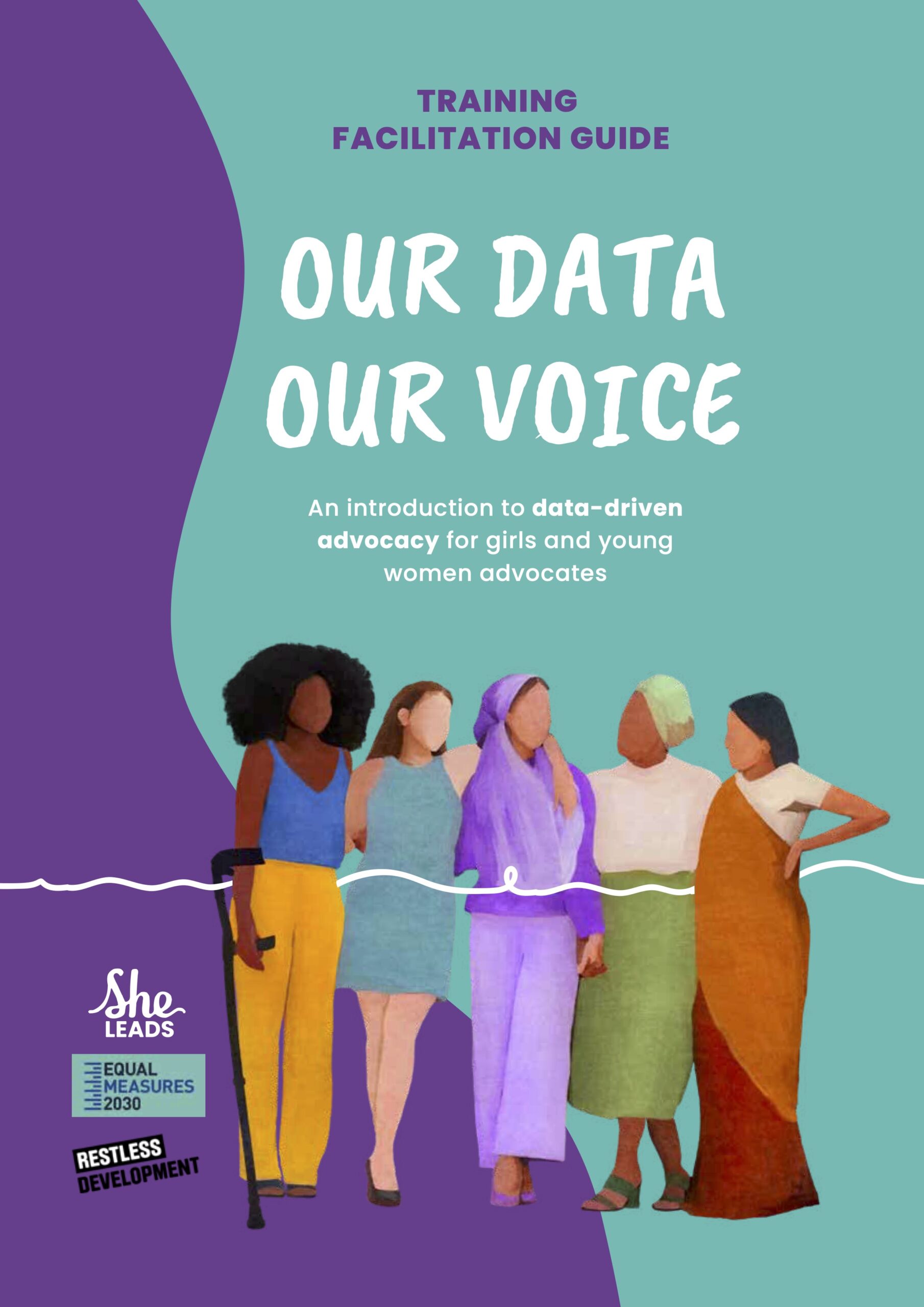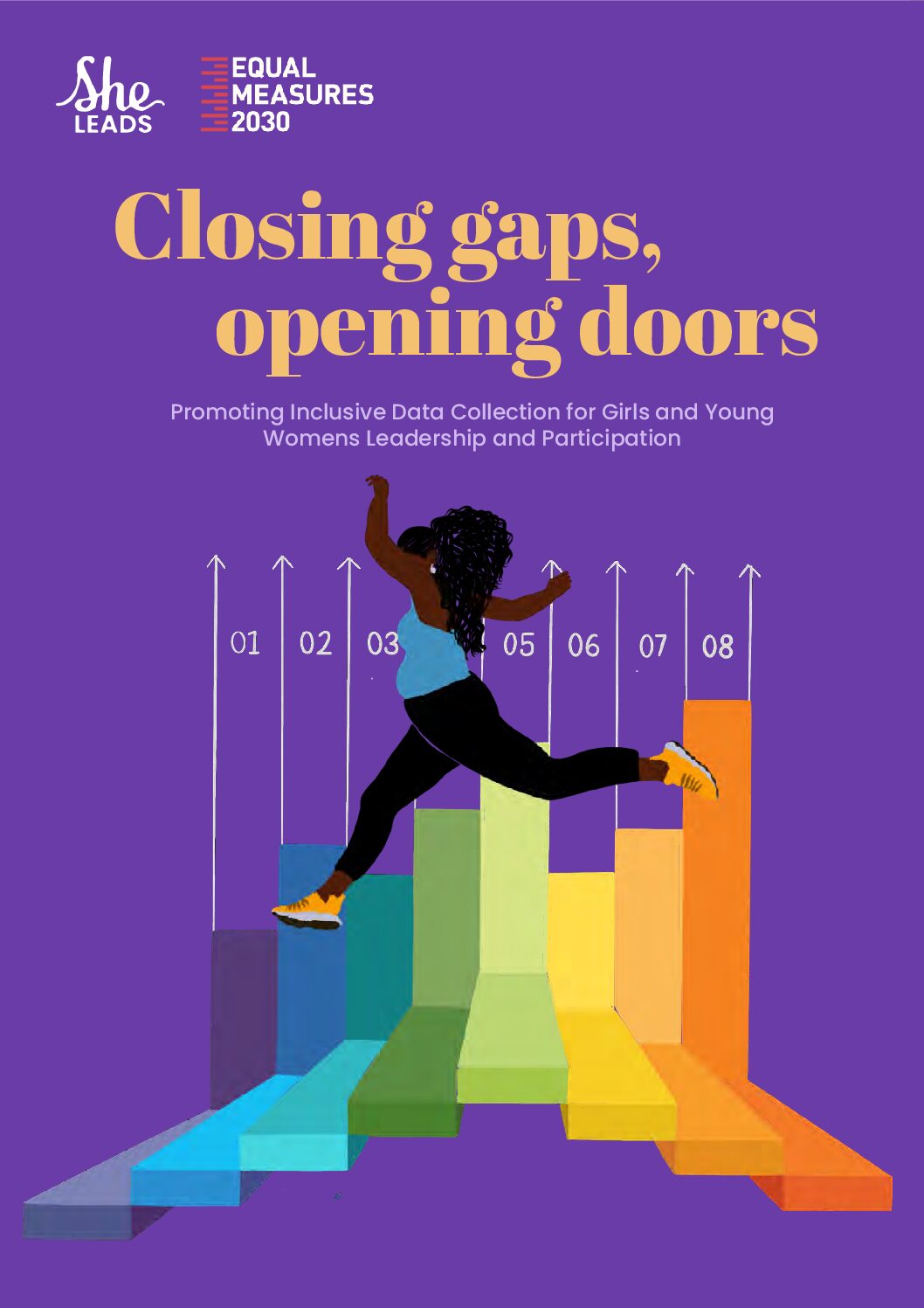She Leads

Promoting girls’ and young women’s leadership through data
Since 2021, Equal Measures 2030 has been working as a technical partner with She Leads, a global consortium working across Africa and the Middle East to empower and equip girls and young women to speak up for their rights and lead change in their communities and beyond.
She Leads is a joint programme from Plan International Netherlands, Defence for Children – ECPAT the Netherlands (DCI-ECPAT), African Women’s Development and Communication Network (FEMNET), and Terre des Hommes the Netherlands (TdH-NL). The programme aims to increase sustained influence of girls and young women on decision-making and the transformation of gender norms in formal and informal institutions. It focuses on East Africa (Uganda, Ethiopia, Kenya), West Africa (Ghana, Mali, Sierra Leone, Liberia) and the Middle East (Lebanon, Jordan).
Our work as part of She Leads has focused on capacity strengthening of youth advocates in data-driven advocacy, and the production of a global research report on data on girls’ and young women’s leadership and participation.
Our Data, Our Voice: an introduction to data-driven advocacy for girls and young women advocates
This series of training modules, developed together with Restless Development, provides a comprehensive introduction to data-driven advocacy for young advocates. The three modules cover key data concepts and seek to provide young advocates with the skills they need to find relevant data sources and use data to communicate their advocacy message. The facilitators guide and accompanying presentation are thoughtfully enriched with youth-focused activities, interactive exercises, and engaging discussions.

Closing Gaps, Opening Doors: Promoting Inclusive Data Collection for Girls’ and Young Women’s Leadership and Participation
This research responds to observations by the She Leads consortium on the significant data gaps on GYW leadership, participation and decision making, in particular the lack of age- and gender-disaggregated data, which limit our understanding of these issues and the progress that can be made. Through analysis of primary and secondary evidence, and providing the perspective of GYW advocates, the study identifies barriers in the current data landscape and opportunities to advance progress. The study was conducted across the nine She Leads countries in East and West Africa and the Middle East.


